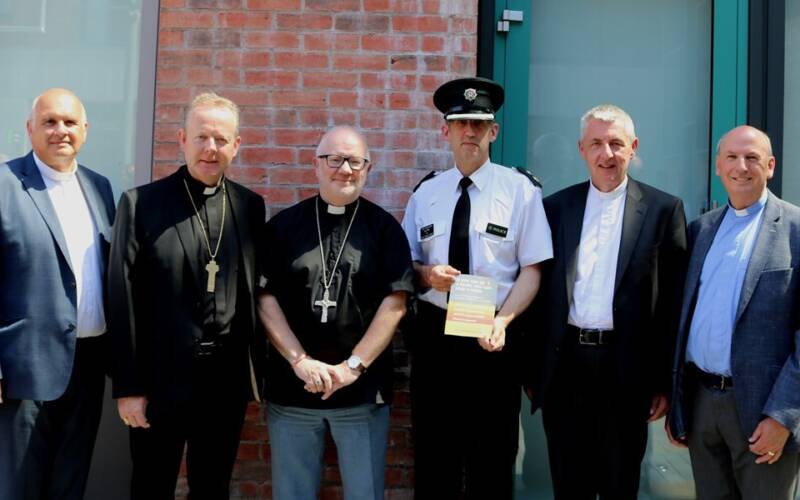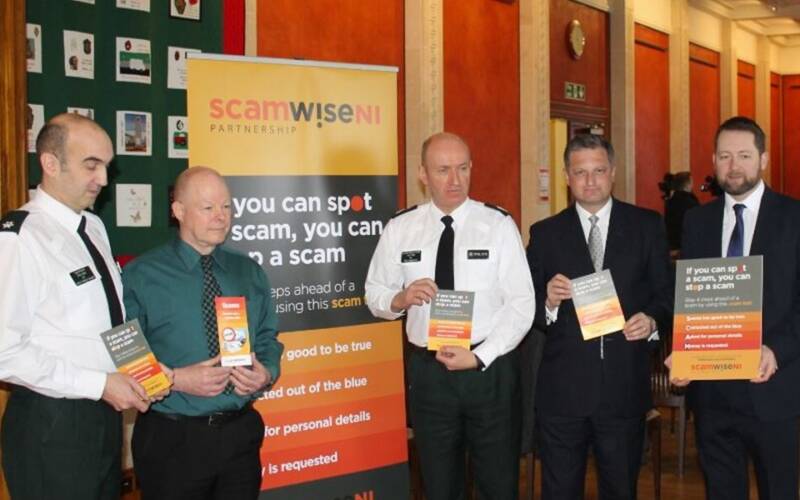Having met with the PSNI earlier this year to hear about the impact of scams on people across the whole community, the leaders of the main Churches here have endorsed the ScamwiseNI Partnership’s campaign and key message: ‘If you can spot a scam, you can stop a scam’.
PSNI Temporary Chief Superintendent Simon Walls with the Church leaders. Left to right: the Revd Brian Anderson, Irish Council of Churches President; Archbishop Eamon Martin, Catholic Church; Archbishop Richard Clarke, Church of Ireland; T/Chief Superintendent Simon Walls; the Rt Revd Charles McMullen, Presbyterian Moderator; and the Revd Billy Davison, Methodist President.
Scams target people of all ages, backgrounds and income levels and the PSNI’s Economic Crime Unit (ECU) has seen the devastating effects that this type of crime can have on people and their families. The Scamwise Partnership advises that one of the best way to fight scammers is to take steps to prevent being caught out in the first place using a simple four-step scam test: you’re being scammed if something Seems too good to be true; you’re Contacted out of the blue; you’re Asked for personal details and Money is requested.
On behalf of the Church leaders, the Revd Brian Anderson, President of the Irish Council of Churches, said, ‘We are encouraging clergy and church members alike to be alert to the problem of scamming and to spread the Scamwise message to friends and family members, especially those who might seem most vulnerable in society. Scamwise leaflets and helpful information will be made available across church networks during the coming weeks.’
Temporary Chief Superintendent Walls said: ‘The ScamwiseNI Partnership exists to raise the awareness of members of our community to the very real risk of scams but also to educate them to some very simple steps they can take to become scam-wise. I am delighted and encouraged that the Partnership has the endorsement and support of the leaders of the main Churches who have undertaken to share the Scamwise message across their many congregations. I look forward to the development of this collaboration over the coming years and the active participation by the Churches in keeping people safe.’




